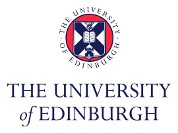The Copyright Hub and the emerging IP infrastructure





– Prof Robin Williams
– Dr Gian Marco Campagnolo
Summary
The permeation of digital technologies and the rapid expansion of the Internet as a global communication network have undermined old business models in the creative industries and opened up a search for new models for distributing content and trading associated IP. A new regime is emerging, in which IP can no longer be negotiated on a bilateral basis. Instead, it is increasingly managed and exchanged through various kinds of intermediaries. A range of private and public initiatives have recently emerged. Their evolution, extension across sectors and national borders and interaction will constitute a new IP infrastructure.
Though still at an early stage in a process of experimentation and “social learning”, we will capture the constitution and evolution of this IP infrastructure through comparing various policy-led and business-led initiatives in the creative economy.
First a detailed longitudinal study will be undertaken of the Copyright Hub : a recent UK-based, policy-led initiative, which attempts to intervene in the current IP framework by becoming ‘the obvious platform for copyright licensing transactions’ (Hooper & Lynch 2012, p.24). The Copyright Hub responds directly to Hargreaves’ recommendation for a Digital Copyright Exchange (DCE) system which would allow rights to be ‘speedily licensed and effectively protected’ (Hargreaves, 2011, p.3). The study will retrospectively examine how the Copyright Hub evolved from inception into its current state as a central gateway to copyright information in the UK. Detailed study of the ongoing interactions between the Hub, major licensors, online intermediaries and potential licensees in the copyright licensing market when the Hub goes live will unpick the dynamics of the Hub’s further development.
Second this will be supplemented by a set of shorter studies of homologous developments across different sectors and regions, designed to capture the trajectories and dynamics across the emerging IP infrastructure. Specifically:
i) a study of the established case of Copyright Clearance Centre (CCC) – a global rights broker based in the US – which has engaged in digital licensing services and rights management since mid-1990s. CCC served as a role model and a place from which core principles of the Copyright Hub were directly borrowed (Hooper & Lynch 2012, p.20). This study will also explore what lessons can be learnt from past accounts of disintermediation in other sectors for the current trajectory of the Copyright Hub and other digital licensing services within the creative industries;
ii) case-studies of recently emerging IP infrastructures within the creative industries (e.g. GettyImages – the world leading creator and distributor of multimedia and still images, and INgrooves – a business-led initiative which offers content creators global distribution service through hundreds of online and offline channels). These studies of the emergence and evolution of these private initiatives will focus upon the ‘trial and error’ processes of developing and sustaining their services; the often invisible organizational and technical work that makes disintermediation possible and the complex interactions content providers/licensors, intermediaries and licensees;
iii) studies of ongoing efforts in other countries to create similar infrastructures for IP, such as the IP Hub in Singapore.
